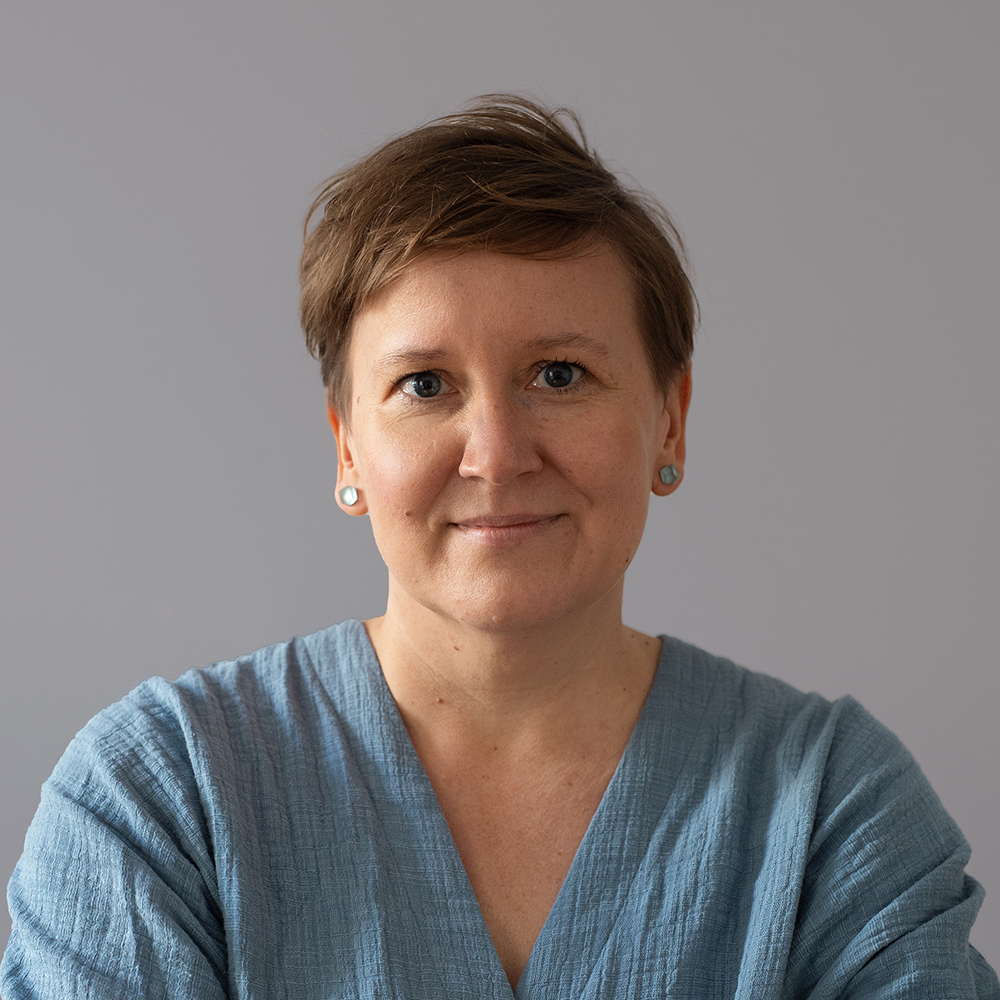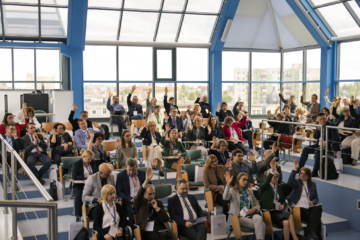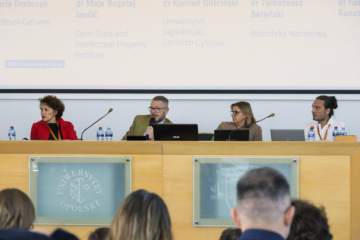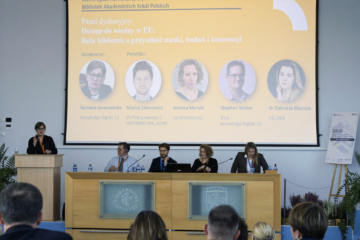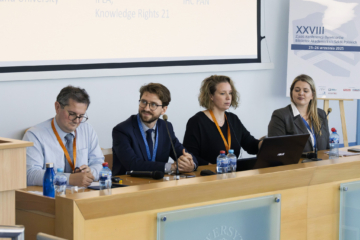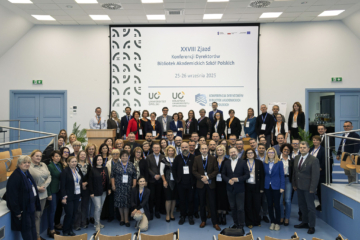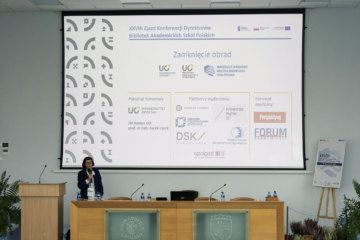Centrum Cyfrowe and Knowledge Rights 21 at the Conference of Directors of Academic Libraries of Polish Universities
The annual KDBASP Conference brought together more than 80 representatives of Polish academic and research libraries, public administration, and social organisations to explore the evolving challenges in library governance.
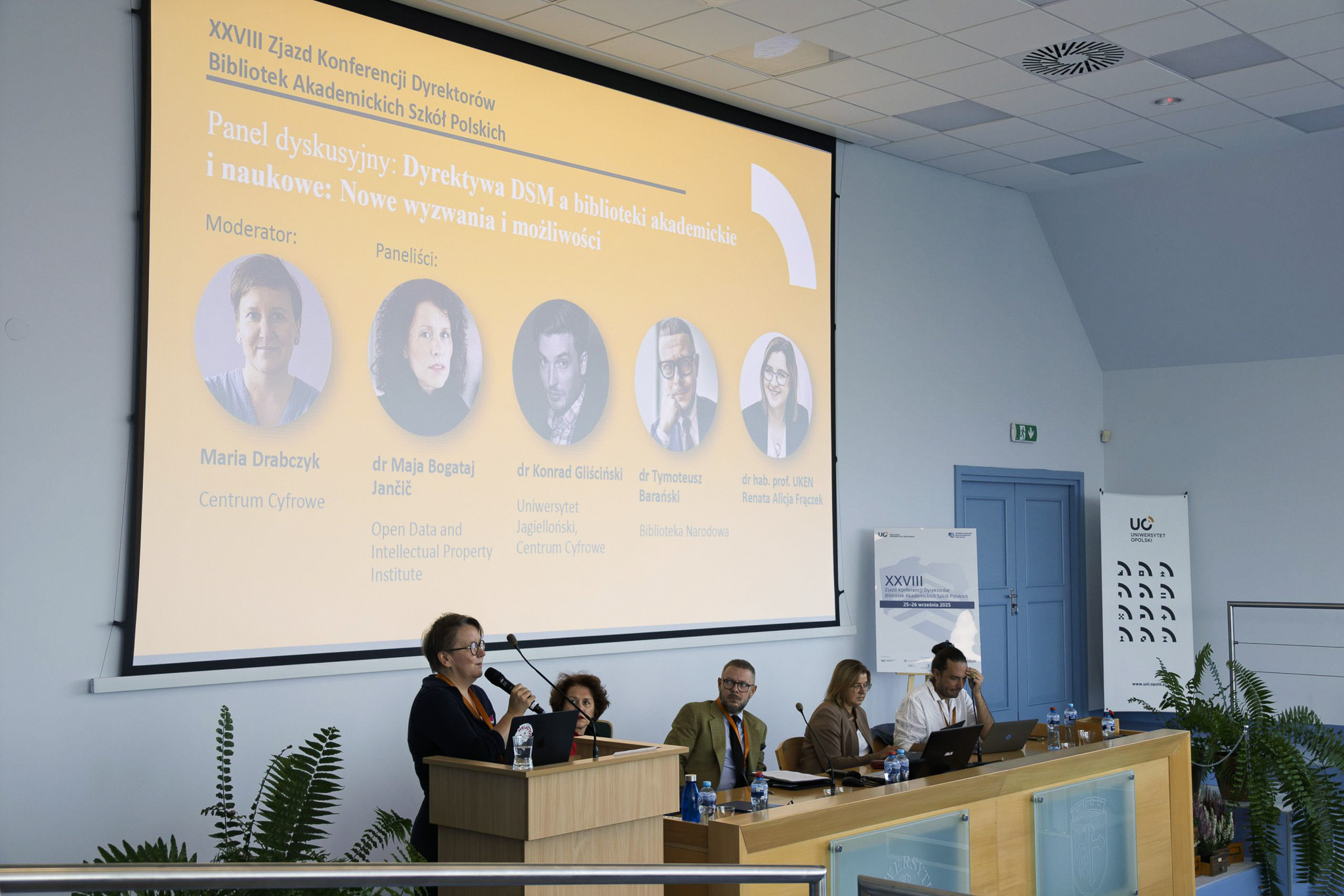
The discussed topics ranged from employment models and legal deposits, to the implementation of the DSM Directive and the need for advocacy actions around future regulations. The event took place on September 25–26 at the University of Opole (Poland), with Centrum Cyfrowe (FCC) and Knowledge Rights 21 (KR21) as official partners.
KDBASP stands for Konferencja Dyrektorów Bibliotek Akademickich Szkół Polskich – Conference of Directors of Academic Libraries of Polish Universities. It is a nationwide forum that brings together directors of academic and research libraries in Poland to discuss key issues related to library management, higher education policy, copyright, access to knowledge, and digital transformation.
On day two of the event the FCC hosted two panel discussions offering a European perspective on access to knowledge, review of the recent CDSM Directive and the need for library advocacy voice joining the ongoing policy discussions.
First of the panels, “The DSM Directive and Academic and Scientific Libraries: New Challenges and Opportunities,” featured legal experts from Slovenia (dr Maja Bogataj Jančič, Open Data and Intellectual Property Institute) and Poland (dr Konrad Gliściński, Jagiellonian University, Centrum Cyfrowe) who analysed how the directive has influenced the functioning of libraries, access to digital resources, and users’ rights. Their conversation also examined gaps in Poland’s implementation from the practitioners’ perspective. Dr Tymoteusz Barański (National Library) and dr. hab. Renata Frączek, Professor at UKEN (Library of the Silesian University of Technology), emphasised the missed potential of that process, which should have strengthened libraries’ position within the digital ecosystem and reinforced their public interest role.
“Academic and research libraries in Poland need stronger legal support to fully realise their public mission – enabling the free circulation of knowledge while upholding respect for authors’ rights. Without a legal framework that empowers libraries to act as open, trusted mediators between creators, researchers and society, their potential to advance science, education, and culture remains limited” – Maria Drabczyk, Centrum Cyfrowe, moderator of the “The DSM Directive and Academic and Scientific Libraries…” panel.
The experts also shared insights on priorities for the upcoming DSM review, stressing the need to introduce provisions on safe harbours, and secondary publication rights across Europe and provide better regulations on e-lending in libraries.
The second panel, “Access to Knowledge in the EU: The Role of Libraries and the Future of Scientific Development, Research and Innovation,” highlighted the importance of strengthening the advocacy voice of academic libraries in shaping EU and national research policies.Â
Speakers shared examples of effective engagement – from the Open Humanistics Manifesto published by the Polish Academy of Science presented by dr Gabriela Manista, IHC PAN, to university-led advocacy initiatives discussed by Andrea Mervik, Lund University and Stephen Wyber, Knowledge Rights 21 – emphasising the key role of libraries in building a fair, open, and innovative European research ecosystem. The momentum to invest in advocacy is right, as said by Maciej Zdanowicz, EU Policy Advisor of NCBR’s Inspiring ERA, as Europe is working on the European Research Area Act – a broad-based ambition to create a single, borderless market for research, innovation and technology across the EU.
“From trusted advisors to active participants in the public debate. Four panelists, four perspectives, one shared conclusion – academic libraries are key stakeholders and advocates, not only for their users but for the entire scholarly community”. – Barbara Szczepańska, KR21, moderator of the “Access to Knowledge in the EU…” panel.
Together, the sessions underscored the growing importance of collaboration and policy engagement by libraries to ensure equitable access to knowledge in the digital age.
Recommended reading:
- e-Books and Secure Digital Lending in European Libraries: Comparative Analysis Under National and International Law – Centrum Cyfrowe’s report for Knowledge Rights 21
- KR21 Position Statement on Secondary Publishing Rights Legislation for a Secondary Publishing Right in Europe
- KR21 Position paper on Authors’ Rights Retention
Photos: Piotr Kasprzyk, University of Opole.
